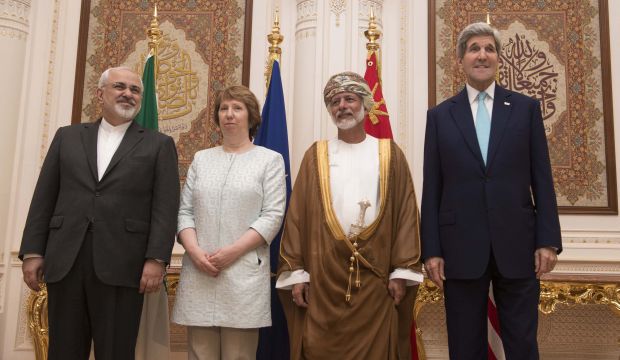The media spotlight is currently focused on the talks between the US, EU and Iran in Muscat, ahead of a November 24 deadline to reach a comprehensive deal on Tehran’s nuclear program.
But the question is: what happens after the deadline? US Secretary of State John Kerry said last week that Washington and its partners will not consider extending it again if there is no agreement. Nevertheless, Kerry did not rule out the possibility of extending the deadline in the event an agreement on the key issues had been reached, with only the technical details remaining to be finalized. Will the deadline be extended? What will be the alternative if the talks fail to reach an agreement? What will the situation in the region be like? What will relations between the West—and the US in particular—and Iran be like? Will they be in a state of war? Or will the “no-war, no-peace” situation continue? Does this mean that Iran will carry on with its nuclear program? What will the position of Israel be on that? Strangely enough, these significant questions are being ignored, not only by media, but by some Arab politicians who use a strangely optimistic tone when talking about the negotiations with Iran.
Ali Akbar Velayati, a senior adviser to Iran’s Supreme Leader, Ayatollah Ali Khamenei, said Iran will not abandon its nuclear rights but is still committed to the negotiations. On the other hand, US President Barack Obama said a big gap still exists between Iran and the Western powers in terms of reaching an agreement guaranteeing Tehran’s inability to produce nuclear weapons. He added that reaching an agreement may be a long shot. Obama maintained that a final step would include Iran offering guarantees it will not develop nuclear weapons, adding that the talks may not achieve any progress. Obama’s comments do not reflect his administration’s realistic approach; rather, Obama is himself facing internal difficulties after the Republicans won a majority in Congress and the Senate in the midterm elections earlier this month. It is no secret that the Republicans will not show any sympathy to any concessions Obama makes to the Iranians.
Therefore, the pressing question remains: what will follow the November 24 deadline? The Obama administration, due to the nuclear talks, has neglected some significant regional issues, exposing one of its most significant regional allies to danger, all with the hope of achieving a political victory, namely a nuclear agreement with Iran. Obama is approaching the final stretch of his second and last presidential term with his approval rating in the basement, given his lack of real achievements. The question I pose to the US and the West is this: what will come after November 24? As for the region, is it prepared for the worst? Whatever it is, what is next is going to be absolutely worse.
